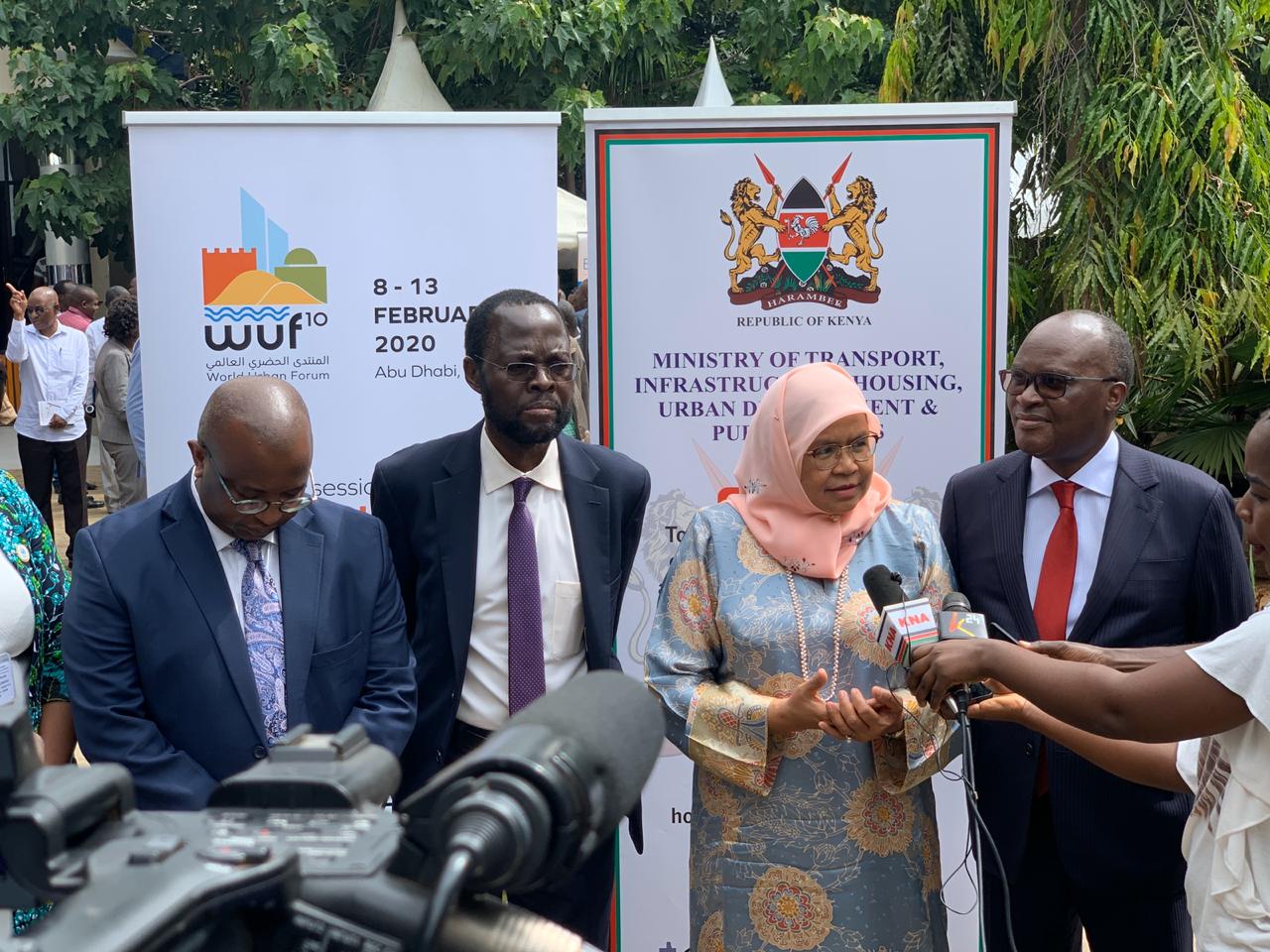Kisumu, 28 January 2020—Just over a week before the Tenth Session of the World Urban Forum kicks off in Abu Dhabi, Kenya hosted its ninth National Urban Forum which also served as an orientation of sorts for the country’s delegates to the premier global meeting on urbanization.
The Kisumu meeting was meant to consolidate the country’s position at the WUF 10. The event, held at the country’s third largest city, Kisumu, was attended by close to 300 participants from National government, civil society, academia, county governments, private sector, youth and women organizations focusing on reaching a common position on best practices to be presented during the WUF 10 in Abu Dhabi, including successful programs and innovation in the urban sector in Kenya.
Registration records from UN-Habitat show that Kenya is one of the leading countries going to WUF10, according to the numbers registered so far.
“I would like to take this opportunity to thank the Government of Kenya and all those involved for organizing this National Urban Forum. I also appreciate the County of Kisumu for accepting to host the Forum. This promises to be an exciting day for me as this is my first National Urban Forum in Kenya”, said the Executive Director, Ms Maimunah Mohd Sharif.
For Kenya, the national urban forum is a significant first step towards the country’s representation at the World Urban Forum. The 10th session of the WUF, as it is popularly known, will take place from 8 to 13 February in Abu Dhabi, the capital of the United Arab Emirates
The National Urban Forum is also the culmination of local and community efforts to bring all key stakeholders together in support of the achievement of the Sustainable Development Goals, particularly Goal #11 on Sustainable Urbanisation. More importantly, it is a strong example of the localisation of the New Urban Agenda.
While noting that the first session of the WUF was held in Nairobi in 2002, the Executive Director added that WUF remains the key platform to highlight innovations in sustainable urbanisation. “We have since added to this global platform a mechanism for the implementation of the New Urban Agenda and the sharing of successful experiences in achieving the urban dimensions of the Sustainable Development Goals.

“Kenya, being among the first countries to develop a popular version of the NUA together with an Implementation Matrix, will find this a useful platform to exchange on progress made in implementing NUA at global, national and local levels “said the ED.
Ms. Sharif is a great champion of WUF and in a separate video, she is on record saying that: The World Urban Forum is a United Nations event that takes place every two years. What is notable is how quickly the conference has developed to become the most important conference on urbanization issues. What is even more special is what happens between conferences when local, national and regional urban forums are convened using the template of the WUF to ensure advocacy turns into action; policy into practice.”
On his part, the Cabinet Secretary for Transport, Infrastructure, Housing , Urban Development and Public Works Mr. James Macharia acknowledged that UN-Habitat’s presence in Nairobi is a positive development that counties should utilize for technical support on area’s related to sustainable urban development.
Kisumu Governor Prof Peter Anyang’ Nyong’o, who is also the Vice Chairman of the Council of Governors’ Urban Development Committee noted that urban planning in counties is a priority and urged county governments to promote sustainable urban development. “We are working to promote energy efficiency solutions including a currently ongoing solar panel project for the city that will reduce energy costs by 60-70pc,” added Mr. Nyong’o. In hosting the National Urban Forum, Kisumu is testing its capacity to host bigger forums such as the Africities Forum scheduled for 2021 in the same city, the Governor said.
Nakuru Governor Lee Kinyanjui who is the Chair of the Urban Development Committee reiterated the need for the counties to establish best practices for peer learning and local benchmarking instead of always relying on international best practices for peer learning.
“In Nakuru, we are working with UN-Habitat to develop bankable urban projects that should, in the future, be useful for learning purposes. We are in the process of signing a collaboration framework with UN-Habitat in this regard”, he said